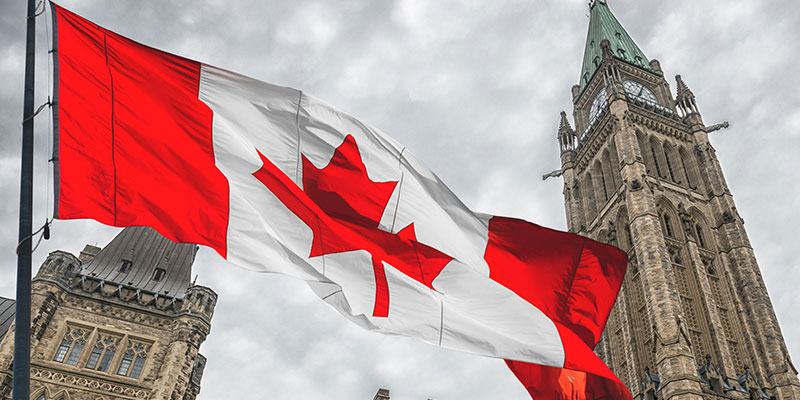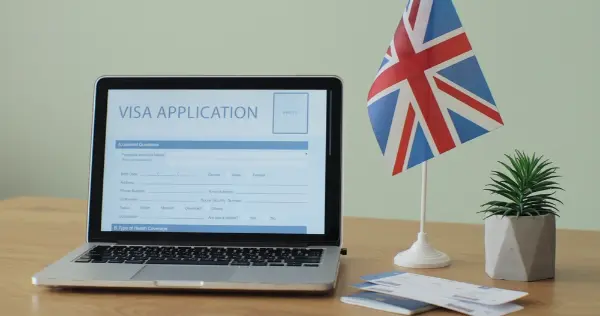What Not to Say During a Canada Work Permit Interview (Top 6 Blunders)
When applying for a Canada work permit, the interview process is an important step that can make or break your chances of success. The work permit interview is an opportunity for immigration officers to assess your eligibility, qualifications, and intentions for working in Canada. It’s essential to understand that the interview is not just a formality but a critical evaluation of your application.
During the interview, immigration officers will ask a range of questions to determine whether you meet the requirements for a work permit and whether your employment in Canada is likely to have a positive impact on the country’s labor market. To increase your chances of success, it’s important to avoid common blunders that can raise red flags or cast doubt on your application.
This article will explore the top 6 blunders to avoid during a Canada work permit interview. By understanding these mistakes and learning how to navigate the interview process effectively, you’ll be better prepared to present yourself as a strong and qualified candidate for working in Canada.
Read: Your Ultimate Guide to Canada Study Permits: Everything You Need to Know
Blunder 1: Providing False or Misleading Information
One of the most serious mistakes you can make during a Canada work permit interview is providing false or misleading information. Immigration officers are trained to detect inconsistencies and misrepresentations, and any attempt to deceive or mislead them can have severe consequences for your application and future immigration prospects.
 Consequences of lying or misrepresenting facts during the interview
Consequences of lying or misrepresenting facts during the interview
- Immediate refusal of your work permit application
- A ban on applying for a work permit or entering Canada for a specified period
- Damage to your credibility and trustworthiness in future immigration applications
Examples of common misrepresentations
- Overstating or understating your job duties and responsibilities
- Claiming qualifications or experience that you do not possess
- Providing false information about your employment history or educational background
It’s important to understand that honesty and transparency are essential throughout the work permit application process. Even if you believe that certain information may weaken your application, it’s always better to be truthful and upfront with immigration officers. Providing false or misleading information can permanently damage your chances of working or immigrating to Canada in the future.
Blunder 2: Being Unprepared or Lacking Knowledge About the Job and Company
Another common mistake that applicants make during a Canada work permit interview is failing to demonstrate a genuine interest in and understanding of the job and company they will be working for. Immigration officers want to see that you are committed to your employment and that you have taken the time to research and prepare for your role in Canada.
Significance of demonstrating genuine interest and understanding of the role
- Shows that you are a serious and committed candidate for the job
- Demonstrates your ability to contribute positively to the Canadian labor market
- Increases your credibility and trustworthiness in the eyes of immigration officers
Common interview questions related to the job and company
- What attracted you to this specific job opportunity in Canada?
- What do you know about the company and its products or services?
- How do your skills and experience make you a strong fit for this role?
- What are your long-term career goals, and how does this job align with them?
Tips for researching and preparing for job-specific questions
- Thoroughly review the job description and requirements
- Research the company’s history, mission, and values
- Identify specific examples from your experience that demonstrate your qualifications
- Prepare thoughtful questions about the job and company to ask during the interview
By taking the time to research and prepare for job-specific questions, you’ll be better equipped to demonstrate your genuine interest and understanding of the role during your work permit interview. This preparation will help you stand out as a strong and committed candidate for working in Canada.
Read: 7 Mistakes to Avoid During Your Canada Work Permit Interview
Blunder 3: Expressing Uncertainty or Lack of Commitment to the Job
 During a Canada work permit interview, it’s essential to convey a strong sense of commitment and enthusiasm for the job opportunity. Immigration officers are looking for candidates who are genuinely interested in contributing to the Canadian labor market and who have a clear plan for their employment in the country.
During a Canada work permit interview, it’s essential to convey a strong sense of commitment and enthusiasm for the job opportunity. Immigration officers are looking for candidates who are genuinely interested in contributing to the Canadian labor market and who have a clear plan for their employment in the country.
Impact of expressing doubts or hesitation about the job or staying in Canada
- Raises concerns about your motivation and dedication to the role
- Suggests that you may not be a reliable or long-term employee
- Undermines your credibility and trustworthiness in the eyes of immigration officers
Examples of statements that may raise red flags for immigration officers
- “I’m not sure if this job is the right fit for me, but I figured I’d give it a try.”
- “I don’t know how long I plan to stay in Canada; it depends on how things go.”
- “I’m just taking this job as a stepping stone to other opportunities.”
To avoid this blunder, conveying a clear sense of enthusiasm and long-term commitment to the role is crucial. Emphasize your genuine interest in the job and company, and explain how the opportunity aligns with your skills, experience, and career goals. Be prepared to discuss your plans for living and working in Canada, and demonstrate that you have thoughtfully considered your future in the country.
Blunder 4: Discussing Irrelevant or Inappropriate Personal Information
A Canada work permit interview is a professional setting, and it’s important to maintain appropriate boundaries when it comes to personal information. While immigration officers may ask some questions about your background and circumstances, it’s crucial to avoid oversharing or discussing sensitive topics that are not relevant to your application.
Risks of oversharing personal details or discussing sensitive topics
- Can make the interviewer uncomfortable or create an unprofessional atmosphere
- May raise concerns about your judgment and ability to maintain professional boundaries
- Can distract from your qualifications and suitability for the job
Examples of inappropriate personal information
- Details about your romantic relationships or personal life
- Health problems or medical conditions that are not relevant to your ability to work
- Political or religious views that are not directly related to the job or your application
To avoid this blunder, keep the focus of the interview on your professional qualifications and experience. If asked about your personal background, provide brief and relevant answers, but avoid going into unnecessary detail or discussing sensitive topics. Remember that the purpose of the interview is to assess your suitability for the job and your ability to contribute to the Canadian labor market.
Read: The 10 Biggest Mistakes People Make When Applying for a Canada Visa
Blunder 5: Criticizing or Speaking Negatively About Previous Employers or Colleagues
When discussing your previous work experience during a Canada work permit interview, it’s essential to maintain a positive and professional attitude, even if you had negative experiences or challenges in your past roles. Criticizing or speaking negatively about previous employers or colleagues can raise red flags for immigration officers and undermine your credibility as a candidate.
Consequences of badmouthing previous employers or coworkers
- Suggests that you may have difficulty working collaboratively or resolving conflicts professionally
- Raises concerns about your ability to maintain positive working relationships
- Can make the interviewer question your judgment and professionalism
Instead of focusing on the negative aspects of your previous work experiences, emphasize the skills and lessons you gained from those roles. If asked about challenges or conflicts, address them tactfully and focus on how you worked to resolve them professionally. For example, instead of saying, “My previous boss was terrible at communicating,” you could say, “In my previous role, I encountered some communication challenges, but I learned to be proactive in seeking clarification and building strong working relationships with my colleagues.”

Additional Tips for a Successful Work Permit Interview
In addition to avoiding the top 5 blunders, there are several other steps you can take to increase your chances of success in a Canada work permit interview:
- Dressing professionally and arriving on time
- Choose appropriate attire that reflects the professional nature of the interview
- Plan your route and arrive at the interview location with plenty of time to spare
- Demonstrating punctuality and respect for the interviewer’s time
- Maintaining confident body language and eye contact
- Sit up straight and maintain good posture throughout the interview
- Make direct eye contact with the interviewer when speaking and listening
- Use gestures and facial expressions to convey enthusiasm and engagement
- Following up with a thank-you note or email after the interview
- Express your appreciation for the opportunity to interview and reiterate your interest in the role
- Briefly highlight any key points or qualifications that you want to emphasize
- Provide any additional information or clarification that may have been requested during the interview
By following these tips and avoiding the top 5 blunders, you’ll be well-prepared to make a strong and positive impression during your Canada work permit interview. Remember, the key is to be honest, professional, and enthusiastic throughout the process, demonstrating your commitment to contributing to the Canadian labour market and succeeding in your chosen role.



7 comments
i really appreciate the information and tips to succeed to get a Canadian visa
sir.
can you help.place give me job canada
please Sir/madam, humbled I really love to work in Canada, help me please
Good evening Madam Joyce, I’m interested in working in Canada, can you help me with the process, I have a Diploma in Logistics and Supply Chain Management, and I am a very skilled in Tiling Projects, here in Joburg, South Africa I’m working in Tiling Projects, because since I have completed my studies I have not had a chance to work in the Logistics industry. I need your help
wow nice
Hello, my name is Murad, I am from Afghanistan, Afghanistan is not busy, I want to go to Canada to work in Canada
I want to be Canadian